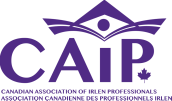Information for other professionals
|
Information for Psychologists
Irlen syndrome is a neurologically-based visual-perceptual dysfunction. It affects the processing of visual information from the eye to the visual cortex and results in cortical hyperactivation.
Irlen syndrome is often mistaken for ADD/ADHD (30%) and dyslexia (46%). (Ironically 30% of all psychotropic medications prescribed for ADHD do not seem to be effective.) Irlen syndrome is not a problem of the eye, but of the brain. Optometric interventions will not resolve Irlen Syndrome, just as an intervention aimed at Irlen syndrome will not have any effect on optometric issues. Consequently, Irlen practitioners require that a client have a visual examination by an optometrist or ophthalmologist, ideally no more than six months prior to an Irlen assessment. There has been a substantial body of research since the 1980s. The efficacy of Irlen Spectral Filters is supported by more than 100 studies led by independent researchers who published their results in peer-reviewed, respected professional journals in the fields of education, medicine, and psychology. Among these are the Journal of Learning Disabilities, Australian Journal of Special Education, Perceptual and Motor Skills, Australian Journal of Learning Disabilities, Journal of Clinical & Experimental Neuropsychology, Journal of Research in Reading, Behavioral Optometry, and Opthalmological and Behavioral Optics, to name a few. A recent review established that of 62 selected studies, 56 had given positive results, 45 noted significant improvement in (the case of) specific reading skills, 11 gave positive results for optical accommodation, improved eye movements, and reduced headaches and migraines. Studies are ongoing in Australia, Italy, Brazil, England, Switzerland, and New Zealand. Key studies are presented below.
Is professional collaboration with an Irlen diagnostician relevant to your practice? The assessment of Irlen Syndrome is meant to complement the activities of professional psychologists, never replace them. No psychometric testing can diagnose Irlen Syndrome at this time and the high rate of erroneous diagnoses that are reported in scientific articles (46% in the case of dyslexia and 30% in the case of ADD/ADHD) should concern all conscientious professionals. |

|
|